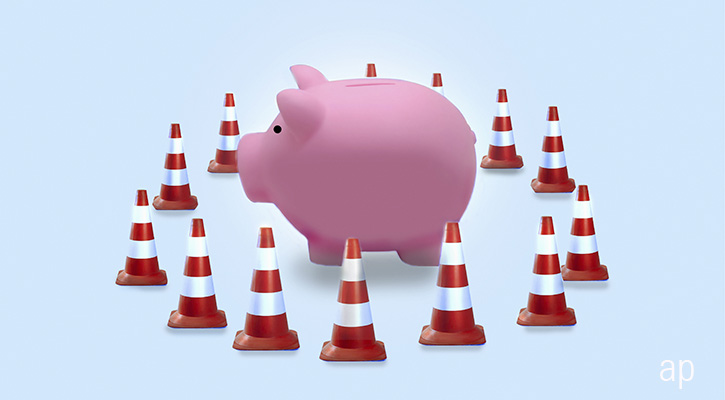
Whenever you speak to a financial adviser, the first thing they are likely to suggest is some form of protection policy. After all, there’s no point trying to accumulate and preserve wealth if you are not protecting it.
We are living in unprecedented times and many industry experts and analysts believe a recession is imminent. So, what are the best types of protection to consider in the lead up to potential economic turmoil, considering we are also in the middle of a global pandemic?
Why Do I Need Protection Insurance?
If the past six months has taught us anything, it is that life as we know it can be turned on its head at a moment’s notice. The global crisis has caused many companies, employers and self-employed individuals to struggle financially. While the government has helped to a degree, if people lose their jobs or have a serious illness or injury, there is not much more than can be done. Which is where the protection industry steps in.
The obvious choice for protection begins with income protection. Designed to protect if you are unable to work due to sickness or injury, it is available as both a short-term or long-term product. Short-term income protection is aimed to cover you for between six months to a year, depending on the provider, while a long-term product usually has a minimum term of five years and continues until you turn 70. The amounts of cover varies as with any insurance product, and the premium can cover up to 70% of your pre-tax earnings.
Unemployment insurance can also be an option (for both employed and self-employed individuals), although it is not currently available.
“Income protection is arguably the most important protection product because it replaces the one thing we all need if we can’t work - our income,” explains Ian Sawyer, director of specialist life and health insurance intermediary Assured Futures. “Short-term and long-term protection has been available pretty much as usual throughout the Covid pandemic, but redundancy cover is currently very difficult to get. As with all insurance though, it’s better to buy cover before we might need to use it.”
It Pays to Be Prepared
It is best to ensure you are protected before a downturn rather than leaving it until the market changes to ensure policies are properly in place. As an example of how demand can take over business, Kevin Carr, co-chair of the Income Protection Task Force says: “At the start of the pandemic the protection industry saw a significant increase in enquiries, with some adviser firms reporting three- to four-fold increases, which levelled out as longer term financial concerns and a dip in the mortgage market took hold.”
Life insurance is another type of protection to consider before a market downturn. While it may feel morbid to consider, the past six months has reminded us that the future is unpredictable. Life insurance can provide that financial safety net for your family when times are tough. It is designed to help loved ones cover funeral costs, pay off any existing debts and continue to pay bills if you die - all of which can be even more difficult in a recession.
Similarly, critical illness cover can help you continue to pay bills should you get one of the illnesses covered by the policy. The policy pays out as a one-off, tax-free payment which can help towards a mortgage or rent, which could be difficult to keep on top of if you are unable to work due to illness, and even harder when markets are tough. Critical illness policies tend to cover conditions including a stroke, heart attack, and certain types of cancers. It will not cover any illness that is pre-existing before taking out a policy. It should be taken out if state benefits will not be enough to replace your income.
What Are the Risks?
Can the payouts from these policies still be relied upon amid such a once-in-a-generation event such as a global pandemic? Carr believes so: “For those who have cover in place already, life cover should pay out if you die from Covid. Critical illness should pay out if the virus leads to a serious condition that is covered. Whether or not income protection pays out is not based on what condition you have, it is based upon whether or not you can work. If you can’t work for long enough, a claim should be paid.”
If we are to believe market experts and we are indeed heading for a recession so soon after a global pandemic, timing could prove crucial when it comes to taking out a policy.
One extra thing to consider when getting policies such as income protection or life insurance, Carr adds: “Anyone applying for cover who has symptoms or has tested positive [for Covid] recently will likely find applications are postponed for a month or two.”


























